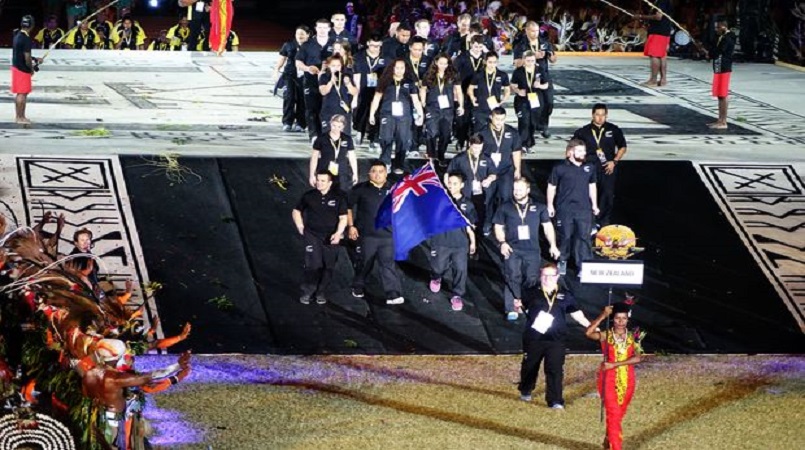
The Pacific Games Council expects the involvement of Australian and New Zealand athletes will continue to grow in the coming years but said any further expansion will be on their terms.
The Trans-Tasman neighbours have been invited to compete in eight sports at next year's Games in Apia, up from four in Port Moresby in 2015.
Pacific Games Council CEO Andrew Minogue said that's almost one third of the 26-sport programme on offer in Samoa.
"Once we get through next year's Games and into the 2020s I think you will see that program of their involvement continue to grow and the competition platform that the Games provides - qualification to world or Olympic events - that will continue to grow as well," he said.
Athletes from Australia and New Zealand featured in weightlifting, sailing, rugby sevens and taekwondo at the 2015 Games in Papua New Guinea.
New Zealand only sent athletes in two of those sports but Australia finished sixth overall, in their debut Games appearance, with a total haul of 47 medals.
"The indication so far is that Australia and New Zealand will take up the majority of the invites (for 2019). Whether they take them all up remains to be seen," Minogue said.
"The eight sports that we've selected weren't ones that they said to us, 'could we please come in these sports,' - they were invitations that we as the Games Council issued to them, looking at what's in the best interests of the Pacific (Island) athletes to help their development, to help with their ability to qualify for the Olympic and so on."
Andrew Minogue said the increasing involvement of Australia and New Zealand will allow the Pacific Games to sit alongside other established regional sporting competitions.
"If you look around the world you see European Games now and all the other continents have long-established Games that are pathway events - like the Asian Games we've just had in Jakarta, Indonesia, African Games and Pan-American (Games).
"So we are taking our place, the Pacific is taking its place in that sort of world programme of regional games through to the Olympics, as we should."
